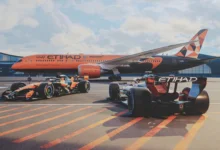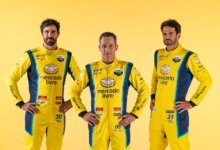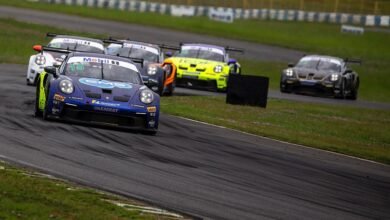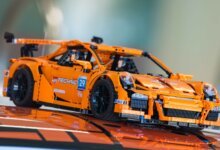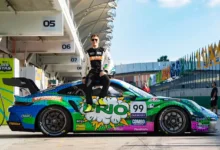If you own a Porsche and you live in Brazil, chances are you know sought after master technician Vinicis Lelis. Lelis is now the workshop manager of the swanky Vega Motor Racing showroom that opened in Sao Paulo last month. Prior to switching over to Lamborghini Lelis spent 13 years as one of Porsche’s master technicians.
Since Lelis began his career working on some of the most expensive, luxurious and intricately designed automobiles in the world of high-performance, his vast experience has turned him into the go-to expert that race car drivers, rare car collectors and those who just really, really love their cars call into diagnose, repair and ensure that their vehicles function how they were designed to. Lelis elite status as a master technician has also led him to be featured in multiple yearbooks of Porsche.

Some of the exceptional cars Lelis has worked on over the years include both the modern and vintage 911 GT3 RS and 911 GT2 RS, the 1973 911 2.7 RS, the 1994 911 type 964 3.6 Turbo, the Carrera GT, the 918 Spyder, and the 911 type 993 Carrera RS, stars of the road that will make any Porsche lover drool. Lelis has been the crewchief, master technician and coach for race cars racing in the prestigious Porsche GT3 Carrera Cup. Aside from being the master technician Porsche Cup would call into work on high profile cars, Lelis is also the lead figure they enlist to train up and coming technicians through their apprenticeship program.
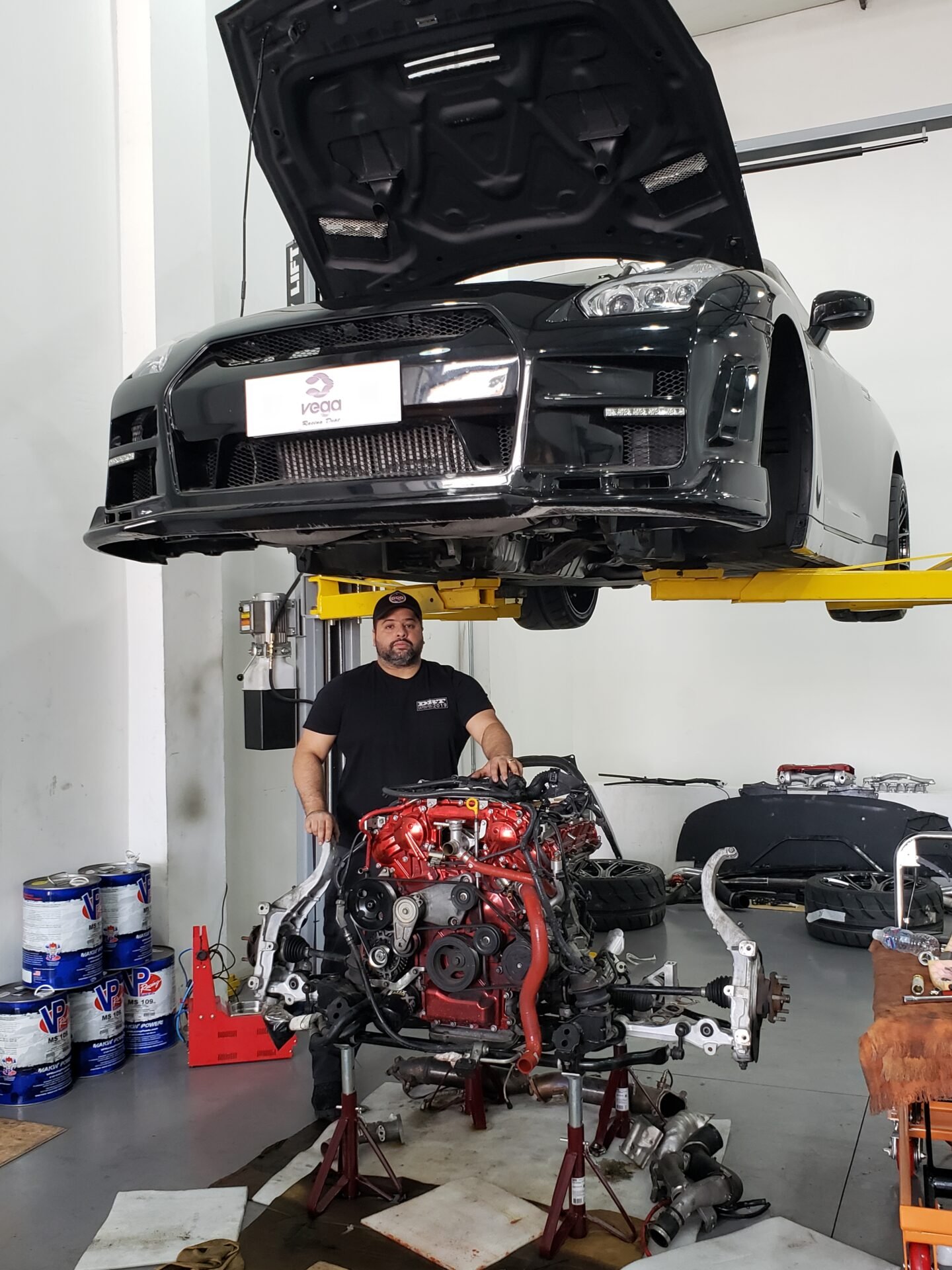
When it comes to maintenance there are no shortcuts with cars like Porsche, Ferrari and Lamborghini. You can’t just drop one of these babies off at the corner mechanic and expect it to come back purring like the well-oiled and highly coveted machine it is because these aren’t like most other cars out there. This is where Lelis comes into the picture.

Lelis says, “What I appreciate most is looking for the origin of the problem, having to look into the car, to deconstruct it,to repair, to improve, to make more safer, to control the mechanical and electronic systems in order to be able to repair the issues… I always like to see beautiful cars or motorcycles, I think certain exceptional models can be compared to art.”
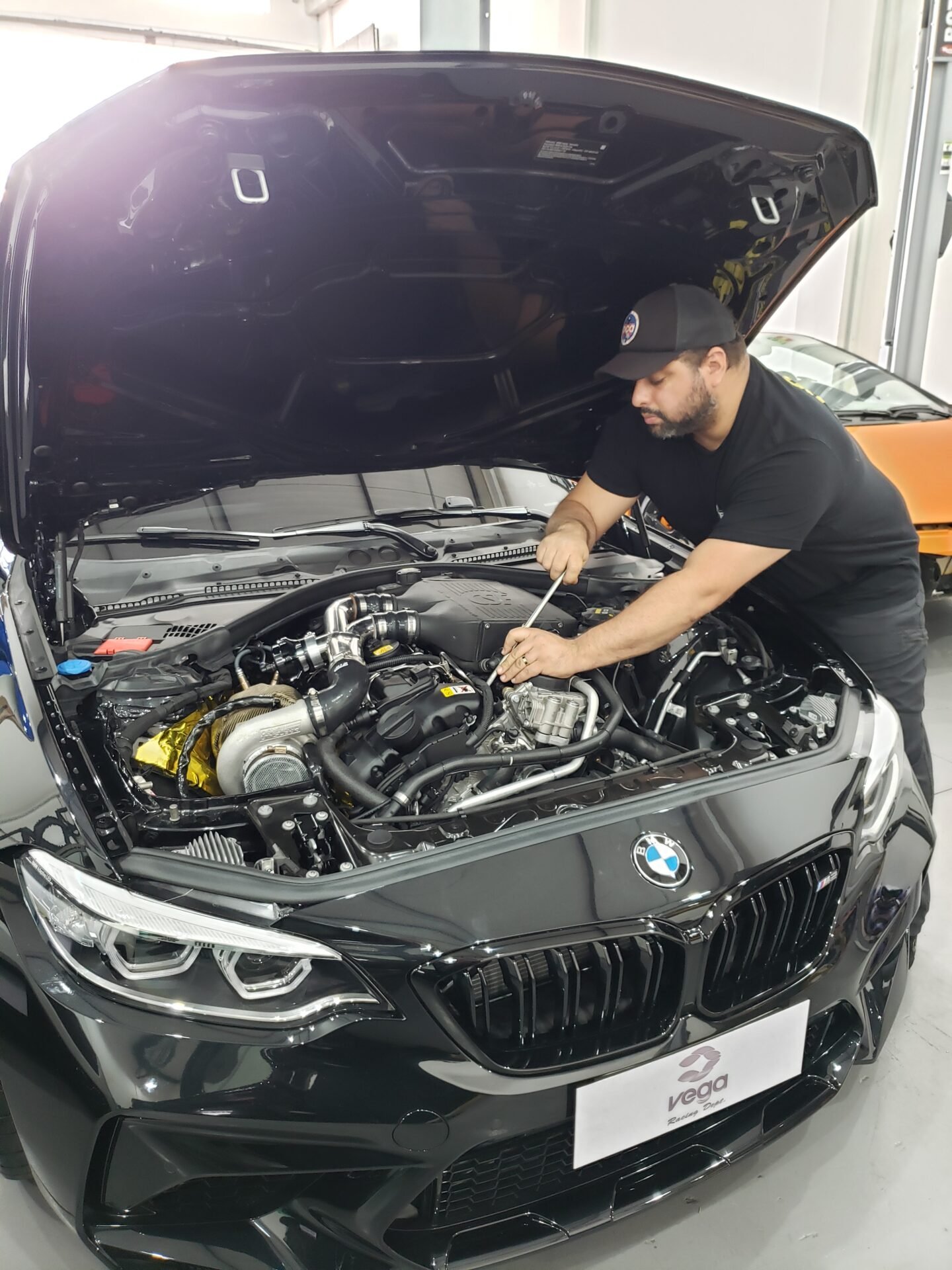
We got to catch up with Vinicius Lellis to find out what makes these cars so darn special, what it takes to become such a sought after master technician and what he loves about his job.
Hey Vinicius, thanks for joining us! Where are you from originally?
VL: I am of Brazilian origin, I come from Sao Paulo, the big gray city due to the rainy wheather, haha!
When did you first get interested in cars and how did you decide that working in the automotive industry was what you wanted to do in your career?
VL: Since I was little, I have always been good with my hands, always dismantling my toys to see how it works. As a teenager I tinkered with bikes and mopeds. I always wanted to go into the concentration of sports engineering and mechanics. When I was 13 I knew that I wanted to work in mechanics and my focus was on racing cars and modified cars.
What is it about cars that inspires you — why are you passionate about this line of work?
VL: I like the mechanics and all the innovations that make sports cars and racing cars what they are. I always like to see beautiful cars or motorcycles, I think certain exceptional models can be compared to art. The automobile has always been a field of full technological development, and I am always intrigued when new technologies are integrated into cars.
How did you begin your career as an automotive specialist?
VL: I started my career as a car mechanic and then I became a specialist technician at Porsche. I was so passionate about the brand, the cars and the technology that I followed all the internal trainings proposed and internal exams to become one of the top 2 awarded Porsche Cup technicians in Brazil.
Can you tell us what the award entails?
VL:Many, many steps: For each level of Porsche certification you have to participate in several trainings followed by a theoretical test. If you succeed in the theoretical you then have to pass a practical test. For the technical test is very complicated for the Professional Highlight level, and the final test includes 3 to 5 breakdowns on a racing car that requires about less than 15 minutes of troubleshooting. Once the that level is obtained, you have to go through the theoretical test every 3 years to keep the certification to work with Porsche racing cars.
What is it that you love about working on racing cars and sports cars?
VL: What I appreciate most is looking for the origin of the problem, having to look into the car, to deconstruct it, to control the mechanical and electronic systems in order to be able to repair the issues, and the satisfaction that comes with delivering the car in solid working order to the customer, or the racing driver. And to see that racing car back in shape and faster than before! Beyond this there is the pleasure of working on unique and exceptional cars, those bring a bit of prestige with them.
What kind of training did you do to get into this industry?
VL: I did an apprenticeship for two years alternating school and work, and it is thanks to the intern training that I could evolve to this level. There were trainings on mechanics and electricity, transmission systems, on-board communications systems such as gps, telephone, internet, fiber optics, and video, air conditioning and with evolutions came hybrid systems. For the racing cars, i had to work after my regular tasks, because there’s no training or college in Brazil to learn that, many times a did a lot of projects for free just to master that area, i had to import to Brazil a lot of books, i had to put all my effort and resources to learn about racing cars.Lots of nights reading, watching, phone calling abroad to friends around the world to learn.
Wow that is a lot to studying! What was it about Porsche that made you want to work with them?
VL: Porsche is an exceptional car brand like McLaren or Lamborghini… I’ve been passionate about this brand since adolescence. The Porsche cars are timeless. Whether it is a 356 model or 911, anyone who’s even a little interested in cars knows that these are exceptional sports cars. Along with technological innovation and designing amazing racing cars, Porsche is a car brand that has always created emotion along with their cars.
There is an other brand that you like to work?
VL: Yes
Wich?
VL: McLaren is a personal goal, right now im working and getting impressed with the Lamborghinis aside Porsches.
Really? In wich way this is happening?
VL: Im working right now with modified sports cars to half mile races, we are very close to break the national record speed overall. We build a 2015 Lamborghini Huracan with twin turbo engine, wich produces around 1800cv. Its a beast, those massive V10 engines can make incredible things with the right tune!
That is Awesome!! That involves a lot of work to hit those marks, though! Aside from your trained knowledge, what percent of your job is intuition when diagnosing an issue with a vehicle, or to build a rocket like that?
ML: For big breakdowns, intuition and experience are always helpful. I would say that 50 percent of the resolution process draws on intuition, but there is still a lot of knowledge and experience needed in order to know where to start without getting lost in research. In case os building a racing car or modify a sports car like our Huracan, you have to study a lot, and that intuition in the process is more than 70 percent, there is no margin to fail or error.
Impressive! But you are yet a Porsche guy, correct?
VL: Of course, hahaha! But im in love with those V10s with huge turbos.
Out of all of the Porsche cars old and new, which is your favorite and why?
VL: My favorite Porsche is the 911 type 964. I thought it was the most beautiful car. The test drive confirmed for me that it was an exceptional car.
What ultimately led you to switch from working for Porsche to Lamborghini?
VL: I had the choice to stay at Porsche as a technician for another year and then take over for their workshop manager, or to become the workshop manager at Vega’s that was about to open. I chose Lamborghini because the cars are a little more exclusive than the Porsche, but mostly because of the challenge that comes with opening a new workshop, to have to start from scratch and put everything in place to make the customer experience a success.
Can you tell us some of the similarities and the differences between working on Porsche and Lamborghini cars?
VL: There are a lot of similarities between Porsche and Lamborghini, they are both very high-end luxury sports cars. But Lamborghinis is a level above the Porsche models. The Porsche supercars are the classic models for Lamborghini. Lamborghini cars are more powerful, rare, more technically advanced and much more expensive. It is necessary to be more focused and attentive when working on a Lamborghini, it is like working on a Porsche supercar.
And what about the race cars? Any plans? Tell more about it!
VL: Always! Right now i have a great offer in paralel with my regular job with a great Endurance race project, like Daytona 24hour, Sebring, the IMSA championship, Le Mans 24h. Im evaluating how will be this next step in my career. Aside that there is a lot of vintage racing cars and rare Porsche cars to be restored and repaired. That is all i can say right now, hahaha!
Oh, cmon! Just a little more to our public!
VL: Okay, here’s a brief history of the races: My first endurance race, it was also the first in Brazil made entirely with Porsche racing cars only, we were totally pioneers in this format because until then there wasn’t a championship in this format IN THE WORLD, and my drivers they were gentleman drivers, meaning they would race against professional drivers in their same category. They were very anxious, nervous, even puking before the start! So my responsibility as their coach, team leader and main mechanic was crucial even for their safety on the track. After a brief conversation about our pit stop tactics, they were afraid they wouldn’t be able to drive for that long, because by then the maximum number of laps they had taken in a stint was something like 15 minutes, and now they would have to do it 4 stints of 45 minutes each!!! I took off their watches and disabled the time of each lap on the car’s dashboard, leaving only the remaining fuel marking the only way for them to know if they should stop in the pit or not. This made their minds forget about the time, the physical and mental fatigue, and so they totally focused on driving. And they went very well! We finished third in the category, ahead of 29 other cars, many of them driven by professional drivers!!!
What an incredible story, Vinicius!!! Surely your experience made a difference for them!!! Thanks for the interview!!!
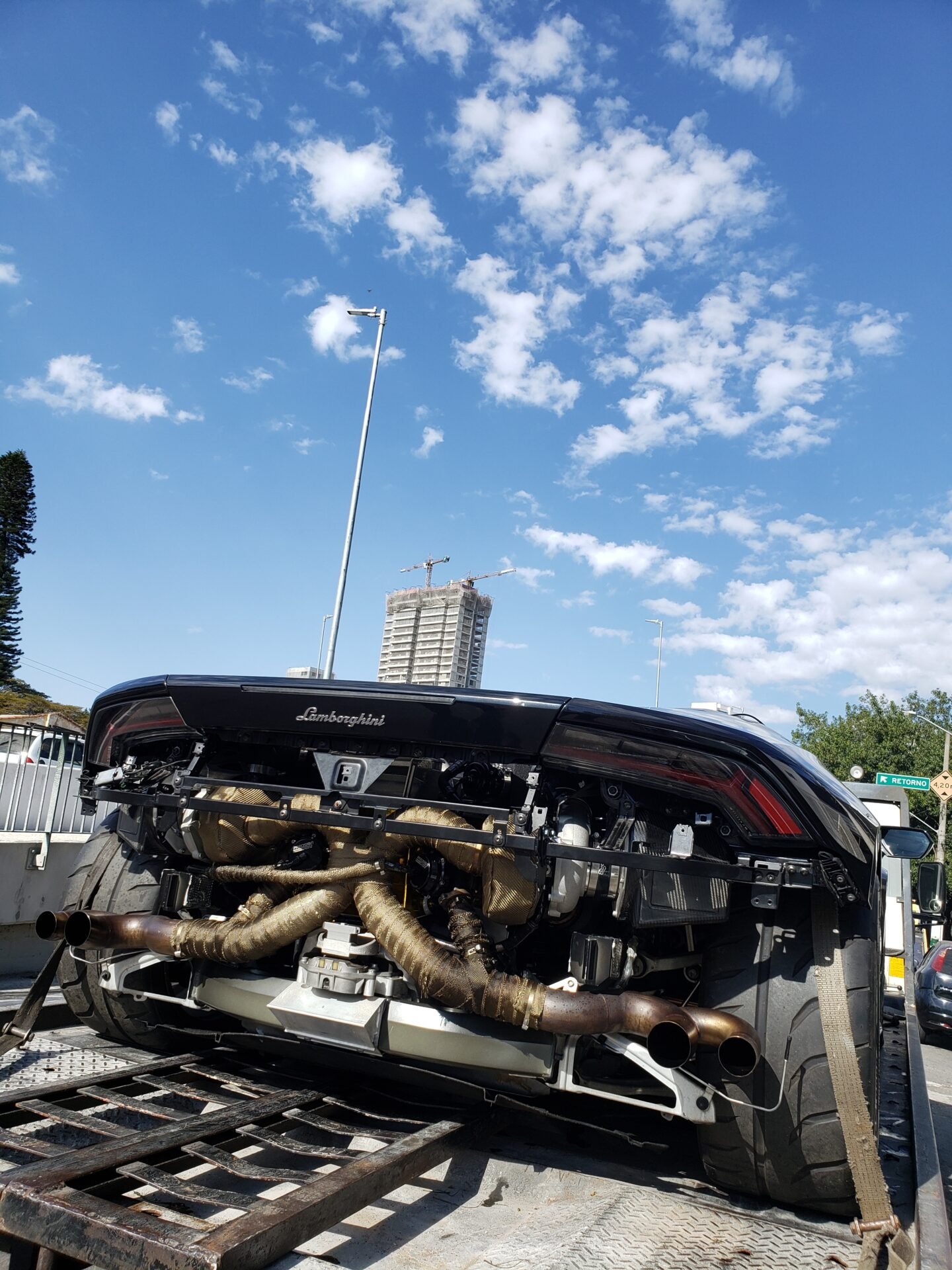
Descubra mais sobre Boletim do Paddock
Assine para receber nossas notícias mais recentes por e-mail.


